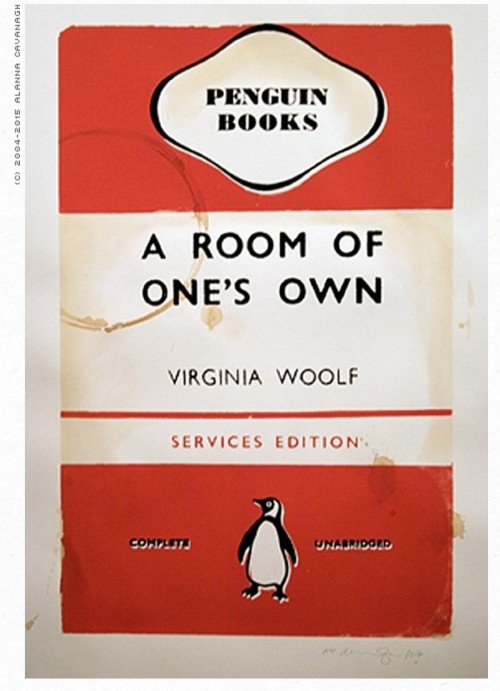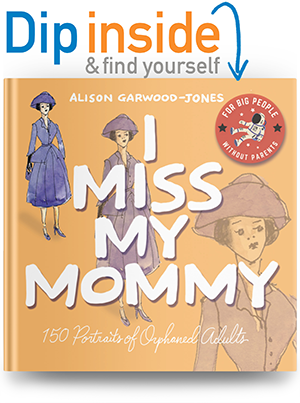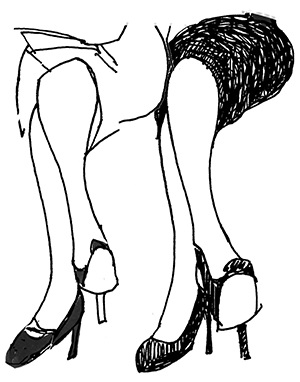Virginia speaks
January 26, 2015
What a find! This is the first time I’ve ever heard Virginia Woolf‘s spoken voice.
Her written voice is very familiar to me.
Her book, A Room of One’s Own, is a Bible to me and most of my friends.
 A Room of One’s Own, Silk Screen Print by Alanna Cavanagh. From a fifth edition of 20 prints. Signed and Numbered. Printed on Acid Free 100% Rag paper. Stained with Coffee and Tea.
A Room of One’s Own, Silk Screen Print by Alanna Cavanagh. From a fifth edition of 20 prints. Signed and Numbered. Printed on Acid Free 100% Rag paper. Stained with Coffee and Tea.
Hearing Virginia read her own words wasn’t something I was expecting while sitting around in my apartment on some random weekend in January (h/t The Paris Review).
Woolf recorded this essay on “Craftsmanship,” the only known recording of her voice, at the BBC’s London studios back in 1937. No doubt, she spoke into one of the broadcaster’s iconic Type A Marconi microphones.
Here she describes the challenges of capturing the essence of life through words. “Words don’t live in dictionaries,” she said, “they live in the mind.” The challenge is knowing how “to combine old words in new orders so they create beauty and tell the truth.”
As her particular vocal tone soaked into and spread across her sentences, plumping out each word, I felt like I was being presented with even more answers to life’s Big Questions. Some women’s minds do that —Virginia, Gloria, Maya, Joni— they make you stop everything and listen hard.
Imagine that: a random find on Facebook was bringing all the disparate thought lines in my head together to a single point. Rocks that that usually felt heavy, were light. It coloured the rest of my Sunday.
As you listen to this, I recommend not focusing on the aristocratic roll of Woolf’s r’s, or the way she trills so primly like Eleanor Roosevelt or Julia Child (judging from the comments on the Paris Review’s website, lots of readers couldn’t get past that).
Every generation and social class has had its particular vocabulary and way of speaking. That shouldn’t distract you from the universals Virginia lays out. Humming below the surface of her posh elocution is the sound of a mind painfully receptive to the ups and downs of work and existence. She reads her own writing with so much conviction. By the end of the recording, you may find, like me, that you’ve gone beyond the ideas she expressed and are reacting equally to the tensile strength and frequency of her presence, which is decidedly more tuning fork than talking head.
Now imagine if Jane Austen’s voice was suddenly available to us?



























Leave a Reply